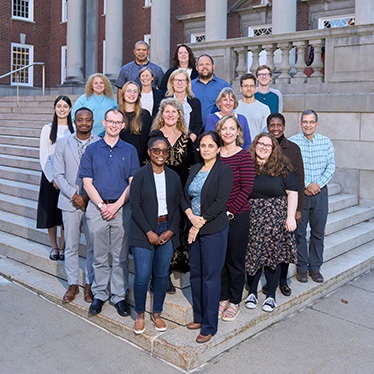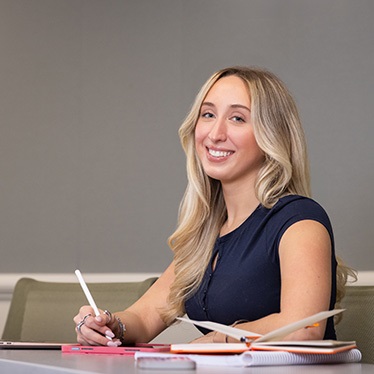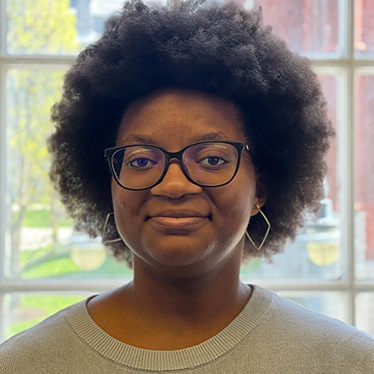Online and Intense
January 1, 2018
On a Tuesday evening, public administration professor Tina Nabatchi is teaching a class for Maxwell's Executive MPA program – polling students about their views, leading discussions, and organizing small-group breakout sessions to work on case studies. The course is Public Administration and Democracy, a cornerstone of Maxwell's PA program that Nabatchi has taught for a decade. But this session has a new twist: Nabatchi is in Syracuse and the dozen students are all over the country, from Boston to Houston to Los Angeles, communicating onscreen in a live video grid.
Welcome to ExecutiveMPA@Syracuse, an online degree program launched in the summer of 2017, which makes Maxwell's renowned MPA curriculum and faculty accessible to midcareer professionals who otherwise could not pursue graduate studies.
"We're able to tap into a group of candidates who are right in the middle or at the height of their careers, and who really can't afford to take a year off, relocate, and uproot their families," says Nell Bartkowiak, director of the program. "These students are not just highly accomplished in their professions, but actively engaged in their communities. They're on school boards and running nonprofits in their spare time. In the program, they share experiences that are current and relevant. It's a vibrant way to explore the material."
“I actually think students are encouraged to interact even more than in a typical classroom setting.”
Raissa Figueiredo
Online student
It's a more richly experienced cohort, Bartkowiak says, than you could attract to a residential program. And they're strikingly diverse. They include Bev Landis, a veteran who is director of military outreach services for the Boys and Girls Clubs of America; Betsy Kelder, executive director of the Boston-area nonprofit Invest in Girls; and Chris Cartwright '90 BA (Econ), who has worked in financial management for the U.S. Department of Commerce since graduation, now as budget director at the National Oceanic and Atmospheric Administration.
"Although a long-time practitioner, I thought the program could strengthen my leadership development and decision-making skills," says Cartwright. "I expect my new position will keep me challenged for some time, and the EMPA coursework and degree will serve me well in my new role."
Using a platform developed by the digital education specialist 2U, the online EMPA integrates real-time communication, one-on-one and in small groups. Professors in the program prepare readings, videos, and other interactive multimedia materials that students work through on their own time. Then, once a week, each class, capped at 15, meets for a 90-minute live session devoted entirely to dialogue and collaboration.
All that built-in live interaction – known as the "synchronous" components of the program – means that students learn not only from faculty but from their peers' experiences in government, nonprofit, military, and private sector careers. "Given the diverse and extensive professional backgrounds of my classmates, the in-class conversation is rich and provides deep insight into public administration across a variety of applications," says Raissa Figueiredo, contract specialist with the U.S. Department of Education. "The level of interaction in the online platform is exceptional. I actually think students are encouraged to interact even more than in a typical classroom setting."
As a member of the online faculty, Nabatchi, too, has been struck by the diverse backgrounds and perspectives that online EMPA students bring to class discussions – such as when an analyst for the Centers for Disease Control and Prevention shared her experiences working in Liberia during the ebola outbreak.
"I've been so impressed with the students," says Nabatchi. "They are obviously highly motivated. They have to be to commit this kind of time during the evening after a full work day. But they're also incredibly bright, talented, and just eager to learn new things that will advance their careers and their ability to do public good."
By Jeffrey Pepper Rodgers
This article appeared in the winter 2018 print edition of Maxwell Perspective © 2018 Maxwell School of Syracuse University.
Related News
School News

Jan 7, 2026
School News

Dec 5, 2025
School News

Dec 4, 2025
